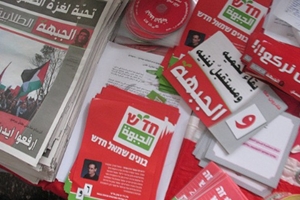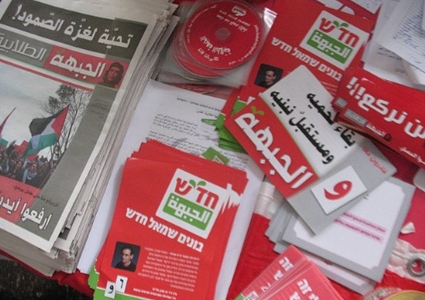
Media and polling organizations in Israel are neglecting the Arab-Palestinians voters, ahead of January’s elections by not including the Arab parties in their polls, according to Hadash (The Democratic Front for Peace and Equality – Communist Party of Israel). MK Dov Khenin (Hadash) sent a letter of complaint to Elyakim Rubinstein, a Supreme Court judge and chairman of the Central Elections Committee, asking that he work to make it mandatory to include Hadash and Arab parties in the political projections and polls taking place ahead of the elections.

In a letter to Rubinstein, MK Khenin asked for the commission “to issue a renewed advisory that would tell pollsters and media outlets to report [on the Arab population] according to the principles of equality as is standard in a democracy.” Meanwhile, advertisements have already been published informing the public how to vote. For example, if a person’s current address is not the same as that listed with the Interior Ministry and on his identity card, he may not be able to vote where he lives. But these ads do not appear to have gone out in Arabic. MK Khenin suggested it may be a deliberate approach and not just a matter of “forgetting” the 20 percent of Israelis citizens who are Arab. Rubinstein on Thursday followed up on MK Khenin’s request with a formal letter to editors of media outlets, requesting that they include Hadash and Arab parties in all surveys.
“This is an issue that we face in every election,” says Attorney Yousef T. Jabareen, the founding director of Dirasat, the Arab Center for Law and Policy, based in Nazareth. “The election committee is not respecting Arabic as an official language of the state, though it is by law, which means that all its activities should also be in Arabic and it should target the Arab community,” he says. “It’s a need and also a right to have the official language used by the authorities during elections. I hope that the election committee will use Arabic in all media campaigns. This is a crucial part of full political participation, and they should adhere to the principle that everything should be in the two languages.”


